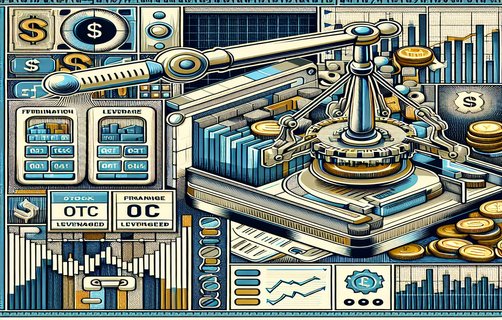
The Samurai of Automation: Navigating Uncharted AI Frontiers in the Workplace
In a world where algorithms dance on the edge of unpredictability, the modern workplace is undergoing a seismic shift. The emergence of advanced AI promises a flashwin moment, yet there lurks the risk of falsevalue in relying solely on automation without a safeapproach.
Challenges of Integrating AI into Traditional Workspaces
Many businesses are at a crossroads. On one hand, AI offers a lowstakevolatility solution to repeatable tasks, enhancing efficiency and reducing human error. On the other hand, overdependence may lead to extrabonus expectations from automation that occasionally result in highriskbet scenarios. Prominent industry experts like Dr. Marianne Leung, a specialist in AI ethics, warn that while automation can drive significant productivity gains, companies must be wary of unintended consequences such as job displacement and the erosion of critical human oversight.
Expert Opinions and Research Findings
Recent research from the Global Institute of Automation has confirmed that approximately 40% of routine tasks can be automated in most industries, offering not only cost efficiency but also the potential to reallocate human talent to more innovative roles. Yet, the same study cautions against the pitfalls of over-automation. Experts advise that a balanced approach—integrating AI tools while maintaining robust human supervision—is essential for sustainable progress. As companies implement these technologies, they must establish rigorous performance and ethics benchmarks, ensuring that the allure of extrabonus returns does not mask the latent risks of highriskbet decisions.

Opportunities: Redefining Work and Skills
The transformation is not just about replacing tasks but reshaping the very essence of work. When harnessed correctly, AI can serve as a catalyst for creativity and innovation. Workers are encouraged to develop uniquely human skills such as empathy, critical thinking, and emotional intelligence—qualities that machines have yet to master. This paradigm shift invites companies to foster a culture of lifelong learning and agile adaptation.
Interactive Question Time! As you reflect on these insights, consider: Are you ready to embrace lifelong learning in an AI-driven world? How might companies balance safety and ambition in automated processes? Can technology and human ingenuity cooperate without one overshadowing the other? What ethical standards should guide the quest for efficiency?
FAQs
Q1: What are the main benefits of implementing AI in the workplace?
A: AI can increase productivity, reduce human error, and free up employees to focus on creative and strategic tasks.
Q2: How can businesses mitigate the risks associated with highriskbet automation?
A: By adopting a balanced approach that includes rigorous oversight, ethical guidelines, and continuous human intervention, companies can counteract potential pitfalls.

Q3: What skills should employees develop to stay relevant in an automated workplace?
A: Employees should focus on enhancing skills such as creativity, empathy, critical thinking, and strategic problem-solving.


Comments
AliceWonder
This article brilliantly captures the balance between enthusiasm for tech and the caution needed for its integration. Loved the expert quotes!
张伟
非常有启发性,对如何在AI技术潮流中保持人性展示了不同的视角。期待更多这样的分析。
TechGuru99
I appreciated the discussion on the role of ethics in AI automation. It’s refreshing to see a deep dive that goes beyond surface-level optimism.
李娜
文章提供了非常实用的建议和启示,尤其是在平衡自动化优势与风险方面给出了非常具体的方向。
InnovateNow
The interactive questions at the end made me think twice about my own workplace strategy. Really engaging read!